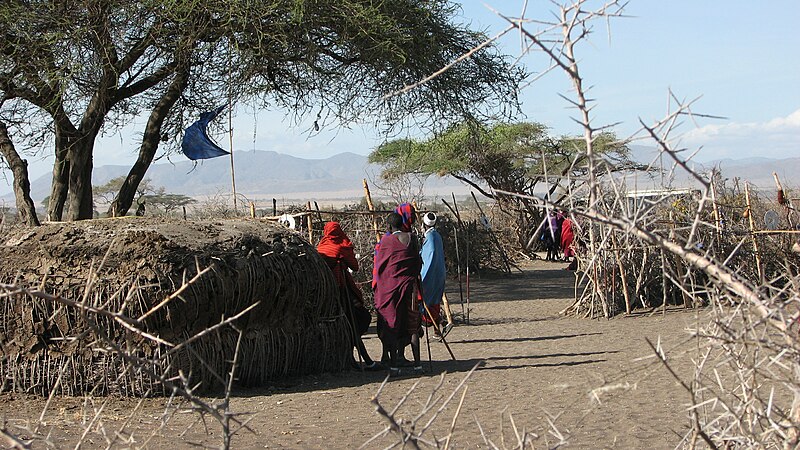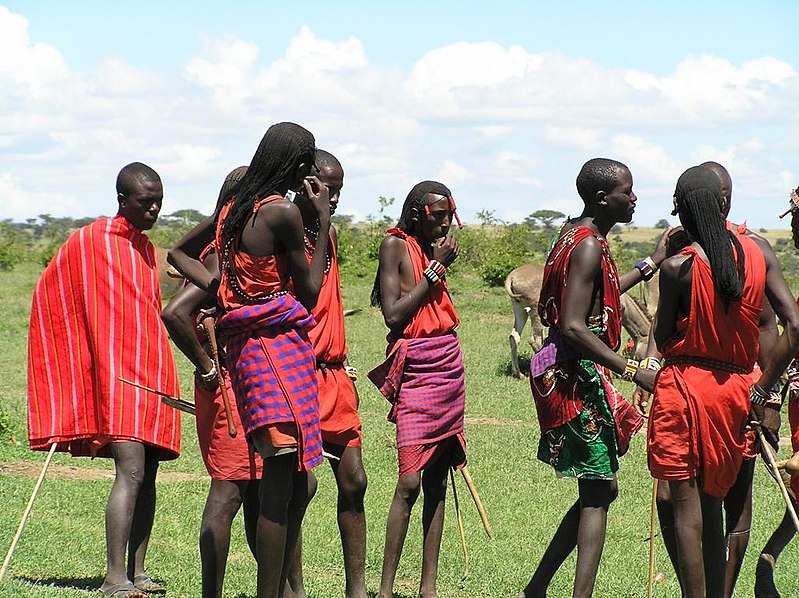Amboseli National Park, a gem nestled at the foot of the iconic Mount Kilimanjaro, is a destination that beckons travelers from all corners of the globe. While its vast savannahs, teeming with wildlife, are a primary draw, there's a deeper allure that often goes unexplored. Beyond the majestic elephants, prowling lions, and the silhouette of Kilimanjaro, lies a rich cultural tapestry woven by the Maasai people. This indigenous community, with its vibrant traditions, age-old rituals, and profound connection to the land, offers a cultural immersion that's as captivating as the park's natural wonders. As you delve into the heart of Amboseli, you're not just witnessing nature in its rawest form, but also stepping into a living museum of Maasai culture, where every dance, song, and bead tells a story.
Below, we take you through the rich Amboseli cultural experience you can expect when you visit.
The Maasai People: Guardians of Amboseli
The Maasai are an indigenous ethnic group primarily residing in Kenya and northern Tanzania. Known for their distinctive customs, vibrant red shawls, and resistance to modernization, they have become one of Africa's most internationally renowned tribes. Historically, the Maasai are semi-nomadic people, relying heavily on cattle herding, which plays a central role in their culture and traditions. Cattle are not just a source of food but also a symbol of wealth and status within the community. Their deep connection to the land, especially regions like Amboseli and the areas surrounding Mount Kilimanjaro, has made them the de facto guardians of these territories.
The Maasai's relationship with the environment is symbiotic. They've lived harmoniously with nature, understanding its rhythms, and respecting its boundaries. This bond is evident in their reverence for Mount Kilimanjaro, which they consider sacred, believing it to be the dwelling place of their deity, Enkai. As we delve deeper into the cultural experiences Amboseli offers, we'll uncover the intricate tapestry of Maasai traditions, beliefs, and their profound connection to the land they've inhabited for centuries.
Traditional Maasai Villages: A Glimpse into the Past

An 'enkang' or Maasai village offers a snapshot of a way of life that has remained largely unchanged for centuries. The circular arrangement of huts, made of mud, sticks, and cow dung, signifies community and unity. Engaging with the villagers, visitors can witness age-old rituals, dances, and ceremonies that mark various life stages, from birth to warriorhood to elder status.
The Art of Beadwork: Stories in Color
Beadwork is an integral part of Maasai culture, with each color and pattern narrating a story. For instance, red symbolizes bravery, strength, and unity. Engaging with local artisans provides insights into the meticulous process of crafting these beadworks and the stories they encapsulate.
Maasai Warriors: Protectors of the Plains
The 'Morans' or Maasai warriors are revered figures, undergoing rigorous rites of passage to earn this title. Their responsibilities range from protecting the community from wildlife threats to mentoring the younger generation. The iconic red shuka they don, often complemented by intricate beadwork and white paint, symbolizes their bravery and stature within the community.
Traditional Song and Dance: The Heartbeat of the Maasai

The Maasai are renowned for their distinctive music and dance, which play a pivotal role in their cultural ceremonies and celebrations. One of the most iconic dances is the "Adumu" or "Aigus," often referred to as the "jumping dance." In this dance, Maasai warriors (Morans) gather in a circle, and one or two at a time will enter the center to begin jumping. Impressively, these warriors can leap incredibly high from a standing position, often reaching heights of up to 30 inches or more.
This dance is not just a display of physical prowess but also a rite of passage and a symbol of the warriors' strength and agility. The higher a Maasai warrior can jump, the more admiration and respect he garners from his peers. Accompanied by rhythmic chanting and deep vocal harmonies, these dances offer a mesmerizing spectacle that resonates with the heartbeat of Maasai culture. It's an experience that resonates deep within and stays with you long after you leave Amboseli.
Sustainable Tourism: Supporting the Maasai Community
Amboseli's tourism initiatives often involve collaboration with the Maasai. This ensures that the benefits of tourism trickle down to the community, supporting their traditional way of life while promoting sustainable practices. By choosing community-led tours or purchasing local crafts, visitors play a part in this symbiotic relationship.
Culinary Delights: A Gastronomic Journey
The Maasai diet, rich in proteins, includes staples like 'ugali' (a maize porridge) and 'sukuma wiki' (collard greens). A unique aspect is the traditional mixture of cow's milk, blood, and meat, offering a nutrient-rich meal. Sampling these dishes provides a taste of the Maasai way of life.
Traditional Healing: Nature's Pharmacy
The vast plains of Amboseli are a treasure trove of medicinal plants. The Maasai healer, or 'laibon', possesses an encyclopedic knowledge of these herbs, using them to treat ailments ranging from common colds to more severe conditions. This ancient wisdom underscores the importance of preserving Amboseli's biodiversity. Learn about the traditional remedies they use, the significance of these plants in their culture, and the role of the Maasai healer.
Wildlife Coexistence: A Lesson in Harmony
The Maasai's relationship with the wildlife of Amboseli is a testament to their adaptability and respect for nature. Their traditional 'bomas' (enclosures) are designed to protect livestock from predators, showcasing an age-old system that minimizes human-wildlife conflict. Discover how they live alongside Africa's big five, their traditional methods of protecting livestock from predators, and the lessons we can learn from their sustainable way of life.
Conservation Efforts: Protecting Amboseli's Heritage
The Maasai community, in collaboration with conservation organizations, plays an active role in protecting Amboseli's rich biodiversity. From community patrols that deter poachers to grassland management initiatives that ensure a sustainable habitat for wildlife, their efforts are pivotal in preserving Amboseli's natural heritage. Learn about the steps they're taking to ensure that Amboseli remains a haven for wildlife and a testament to Maasai heritage.
The Allure of Mount Kilimanjaro
Mount Kilimanjaro, the highest free-standing mountain in the world, stands as a sentinel over Amboseli National Park. Its snow-capped peak, rising majestically above the savannah, is not just a visual spectacle but also holds deep cultural significance. For the Maasai people, Kilimanjaro is revered as a sacred place where their ancestors reside and where God dwells. This belief is deeply rooted in their oral traditions and folklore.
The mountain is seen as a symbol of life, providing water for the community and their livestock through the streams that flow from its melting glaciers. Rituals, songs, and dances dedicated to Kilimanjaro are an integral part of the Maasai culture, emphasizing its role as a guardian and provider. The mountain's presence has shaped the Maasai's way of life, influencing their nomadic patterns, spiritual practices, and even their art.
As travelers gaze upon Kilimanjaro from Amboseli, they're not just seeing a natural wonder but also a cultural landmark that stands testament to the harmonious coexistence of the Maasai with their environment.
Experience Amboseli Beyond the Wildlife
Amboseli is more than just a wildlife destination; it's a journey into the heart of Maasai culture. From the vibrant dances to the intricate beadwork and the tales of valor, every experience here is a testament to the rich tapestry of traditions that the Maasai have preserved over centuries. Ready to immerse yourself in this cultural odyssey? Embark on a memorable journey with Campo East Africa Safaris through our special 3-day Amboseli package.


